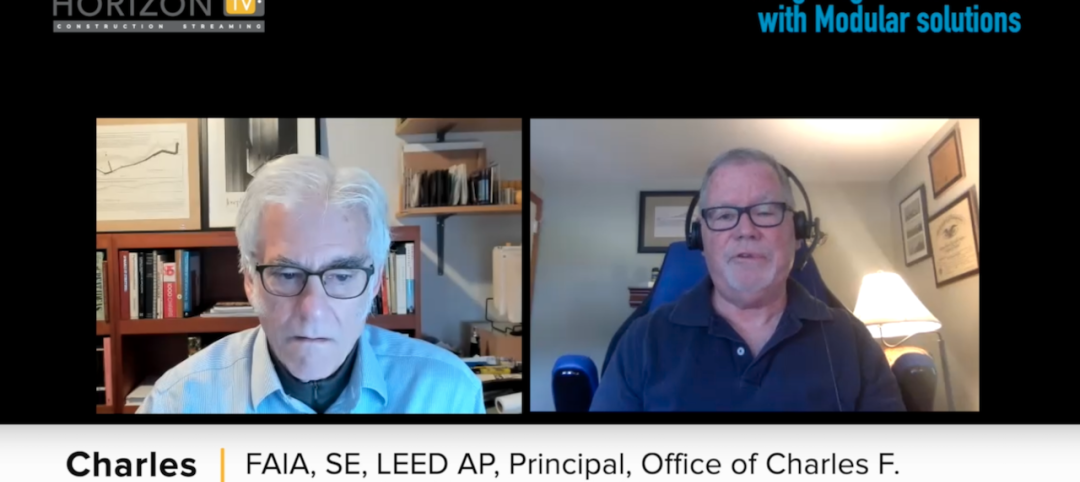Lilker Associates Consulting Engineers (lilker.com), a multidisciplinary MEP engineering firm with offices in Manhattan and Long Island, announces the acquisition of EMO Energy Solutions (EMO), a Falls Church, VA-based company in the DC Metro area specializing in energy audits, energy modeling, commissioning and LEED® consultation services. EMO will be integrated into a wholly owned subsidiary, Lilker EMO Energy Solutions. Managed from the Falls Church office, the newly formed subsidiary will provide comprehensive sustainable building systems design and energy conservation services on projects throughout the U.S.
EMO was founded in 1998 by licensed engineer and LEED Accredited professional Eric Oliver. The firm has developed energy strategies and provided energy consultation services to clients in the residential, commercial, institutional, government, and industrial building sectors for the past 15 years. Named one ofInc. Magazine's fastest growing companies in 2009, EMO has conducted over 45 million square feet of energy audits and participated in more than 350 LEED projects.
By combining the capabilities of a full service design firm with energy specialists, Lilker EMO Energy Solutions will provide state of the art knowledge and experience to enhance energy efficiency at every stage of the building process—from planning, design, energy modeling and energy auditing through installation, commissioning and retro-commissioning—for new construction and existing building renovations.
Lilker CEO and President Bruce Lilker, PE, says, "The formation of our new subsidiary, Lilker EMO Energy Solutions, reflects our commitment to sustainable design and allows us to offer clients the full range of energy consulting services along with our extensive design capabilities. It also provides an opportunity to bring our significant expertise in MEP engineering and technology solutions to the Washington, DC area."
Lilker EMO Energy Solutions will be led by Oliver, who will serve as Managing Director. A passionate conservationist, Oliver started his career with the federal government in EPA's Energy Star Buildings Program. He founded EMO to address the growing need for energy audit services, prior to the advent of the LEED rating systems. EMO was one of the earliest practitioners of the LEED program, adding energy modeling, commissioning, and LEED consulting services to its auditing capabilities. Oliver's 23 years of experience also includes technology feasibility studies, cost-benefit analysis, and the development of energy conservation and sustainable design strategies and policies. He has conducted energy training seminars, created energy awareness and education campaigns, and presented and moderated at several energy conferences.
Oliver holds a Master's degree in Building Technology and a Bachelor of Architecture from MIT. He is a Certified Energy Manager and a Certified Home Energy Rater.
"We're very excited about joining forces and becoming part of the Lilker team," says Oliver. "Integrating our skill set with the design function benefits the client from the planning stage forward. It streamlines the process and allows us to have a greater impact on energy conservation, which has always been my ultimate goal."
Founded in 1985, Lilker Associates is an award-winning, 100-member MEP engineering and energy firm headquartered in Manhattan with offices on Long Island and in Falls Church, VA. Licensed in many states, the company provides services for new and renovated commercial, institutional and retail facilities as well as high-rise and luxury residential buildings. The firm has two wholly owned subsidiaries: Technology Solutions Group (TSG) serves IT cabling, audio visual and security design needs; Lilker EMO Energy Solutions provides comprehensive energy auditing, modeling, commissioning and LEED consultation services.
(http://www.reuters.com/article/2013/05/01/lilker-acquires-emo-idUSnPNDC05652+1e0+PRN20130501)
Related Stories
Codes and Standards | Jul 17, 2023
Outdated federal rainfall analysis impacting infrastructure projects, flood insurance
Severe rainstorms, sometimes described as “atmospheric rivers” or “torrential thunderstorms,” are making the concept of a “1-in-100-year flood event” obsolete, according to a report from First Street Foundation, an organization focused on weather risk research.
Multifamily Housing | Jul 13, 2023
Walkable neighborhoods encourage stronger sense of community
Adults who live in walkable neighborhoods are more likely to interact with their neighbors and have a stronger sense of community than people who live in car-dependent communities, according to a report by the Herbert Wertheim School of Public Health and Human Longevity Science at University of California San Diego.
Contractors | Jul 13, 2023
Construction input prices remain unchanged in June, inflation slowing
Construction input prices remained unchanged in June compared to the previous month, according to an Associated Builders and Contractors analysis of U.S. Bureau of Labor Statistics Producer Price Index data released today. Nonresidential construction input prices were also unchanged for the month.
Government Buildings | Jul 13, 2023
The recently opened U.S. Embassy in Ankara reflects U.S. values while honoring Turkish architecture
The U.S. Department of State’s Bureau of Overseas Buildings Operations (OBO) has recently opened the U.S. Embassy in Ankara, Turkey. The design by Ennead Architects aims to balance transparency and openness with security, according to a press statement. The design also seeks both to honor Turkey’s architectural traditions and to meet OBO’s goals of sustainability, resiliency, and stewardship.
Affordable Housing | Jul 12, 2023
Navigating homelessness with modular building solutions
San Francisco-based architect Chuck Bloszies, FAIA, SE, LEED AP, discusses his firm's designs for Navigation Centers, temporary housing for the homeless in northern California.
Sponsored | Fire and Life Safety | Jul 12, 2023
Fire safety considerations for cantilevered buildings [AIA course]
Bold cantilevered designs are prevalent today, as developers and architects strive to maximize space, views, and natural light in buildings. Cantilevered structures, however, present a host of challenges for building teams, according to José R. Rivera, PE, Associate Principal and Director of Plumbing and Fire Protection with Lilker.
Building Owners | Jul 12, 2023
Building movement: When is it a problem?
As buildings age, their structural conditions can deteriorate, causing damage and safety concerns. In order to mitigate this, it’s important to engage in the regular inspection and condition assessment of buildings for diagnosis.
Mass Timber | Jul 11, 2023
5 solutions to acoustic issues in mass timber buildings
For all its advantages, mass timber also has a less-heralded quality: its acoustic challenges. Exposed wood ceilings and floors have led to issues with excessive noise. Mass timber experts offer practical solutions to the top five acoustic issues in mass timber buildings.
Multifamily Housing | Jul 11, 2023
Converting downtown office into multifamily residential: Let’s stop and think about this
Is the office-to-residential conversion really what’s best for our downtowns from a cultural, urban, economic perspective? Or is this silver bullet really a poison pill?
Adaptive Reuse | Jul 10, 2023
California updates building code for adaptive reuse of office, retail structures for housing
The California Building Standards Commission recently voted to make it easier to convert commercial properties to residential use. The commission adopted provisions of the International Existing Building Code (IEBC) that allow developers more flexibility for adaptive reuse of retail and office structures.

















